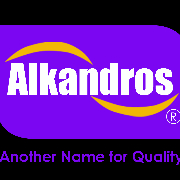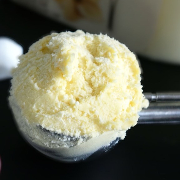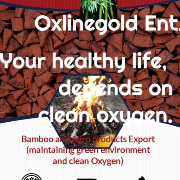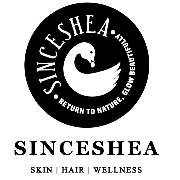













Health Benefits of Shea Butter
Shea butter, a natural fat extracted from the nuts of the African shea tree, has been used for centuries in traditional medicine for its numerous health benefits. Rich in vitamins, minerals, and essential fatty acids, shea butter has become increasingly popular in recent years as a natural ingredient in skincare and haircare products. In this article, we will explore some of the most significant health benefits of shea butter.
...
Moisturizes Skin
Shea butter is an excellent moisturizer that helps to hydrate and nourish dry and damaged skin. Its high concentration of fatty acids, such as oleic, stearic, and linoleic acid, helps to lock in moisture and prevent dehydration, making it a popular ingredient in skincare products like lotions, creams, and balms.
Reduces Inflammation
Shea butter has anti-inflammatory properties that can help to reduce swelling, redness, and irritation in the skin. Its cinnamic acid content has been shown to be effective in reducing inflammation and irritation caused by UV radiation, making it useful in treating sunburns.
Promotes Healing
Shea butter contains a variety of compounds that have been shown to promote healing, such as triterpenes and lupeol. These compounds help to stimulate the production of collagen, which is essential for maintaining healthy skin. Shea butter has also been found to be effective in promoting wound healing and reducing scar formation.
Protects Against UV Damage
Shea butter has a natural SPF of around 6, making it a useful ingredient in sunscreens and other UV protection products. Its ability to protect against UV damage is due to its high concentration of antioxidants, such as vitamin E and catechins, which help to neutralize free radicals and prevent oxidative stress.
Reduces Signs of Aging
Shea butter is an excellent anti-aging ingredient due to its high concentration of antioxidants and essential fatty acids. These compounds help to protect the skin against free radical damage and prevent premature aging, such as fine lines, wrinkles, and age spots. Shea butter is also effective in improving skin elasticity, which can help to reduce the appearance of sagging and wrinkles.
Soothes Skin Irritations
Shea butter has been used traditionally to treat a variety of skin irritations, such as eczema, psoriasis, and dermatitis. Its anti-inflammatory and moisturizing properties make it an effective treatment for these conditions, helping to soothe itching, redness, and irritation.
Improves Hair Health
Shea butter is a popular ingredient in hair care products due to its ability to improve hair health. Its high concentration of fatty acids helps to nourish and moisturize the hair, reducing dryness and breakage. Shea butter is also effective in promoting hair growth and improving the overall health of the scalp.
Relieves Muscle Aches and Pains
Shea butter has been found to be effective in relieving muscle aches and pains. Its anti-inflammatory properties help to reduce swelling and inflammation in the muscles, while its moisturizing properties help to soothe and nourish the skin.
Boosts Immune System
Shea butter contains a variety of compounds that have been shown to boost the immune system, such as vitamin A and vitamin E. These compounds help to strengthen the body's natural defenses against infections and diseases, promoting overall health and wellbeing.
Reduces Stretch Marks
Shea butter has been found to be effective in reducing the appearance of stretch marks. Its ability to stimulate collagen production helps to improve skin elasticity and reduce the appearance of stretch marks over time.
Shea butter is a powerful natural ingredient that offers numerous health benefits. Its moisturizing, anti-inflammatory, and healing properties make it a useful ingredient in
Some Nutritional Values of Shea Butter
Shea butter, also known as karite butter, is a natural fat that is extracted from the nuts of the African shea tree. It has been used for centuries in traditional medicine for its numerous health benefits, and in recent years has become increasingly popular as an ingredient in skincare and haircare products. In addition to its various health benefits, shea butter also contains a range of essential vitamins and minerals that provide additional nutritional value. In this article, we will explore the nutritional values of shea butter in more detail.
Macronutrients
Shea butter is primarily composed of fat, with approximately 85% of its content being various types of fatty acids. The most abundant fatty acid in shea butter is oleic acid, which makes up around 40-60% of the total fatty acid content. Other fatty acids found in shea butter include stearic acid, palmitic acid, linoleic acid, and arachidic acid.
Although shea butter is high in fat, it is also low in cholesterol and has no trans fats. This makes it a healthier alternative to other types of fat, such as butter or margarine.
Micronutrients
In addition to its high fat content, shea butter also contains a range of essential vitamins and minerals that provide additional nutritional value. Some of the most significant micronutrients found in shea butter include:
Vitamin A: Shea butter is a rich source of vitamin A, with approximately 100g containing around 6,000-8,000 international units (IU) of this essential vitamin. Vitamin A is essential for maintaining healthy skin, improving vision, and supporting the immune system.
Vitamin E: Another important vitamin found in shea butter is vitamin E. This powerful antioxidant helps to protect the skin against free radical damage and prevent premature aging. It also supports healthy immune function and may reduce the risk of chronic diseases such as heart disease and cancer.
Vitamin F: Shea butter is also a good source of vitamin F, which is actually a combination of essential fatty acids such as linoleic acid and alpha-linolenic acid. These fatty acids are important for maintaining healthy skin, reducing inflammation, and supporting brain function.
Minerals: Shea butter contains a range of essential minerals, including magnesium, potassium, calcium, and iron. These minerals are important for supporting healthy bones, maintaining proper muscle function, and regulating blood pressure.
Phytosterols: Shea butter also contains phytosterols, which are plant-based compounds that have been found to have numerous health benefits. Phytosterols can help to reduce inflammation, lower cholesterol levels, and improve immune function.
Benefits of Shea Butter
In addition to its nutritional value, shea butter has numerous health benefits. Some of the most significant benefits of shea butter include:
Moisturizing: Shea butter is an excellent moisturizer that helps to hydrate and nourish dry and damaged skin. Its high concentration of fatty acids helps to lock in moisture and prevent dehydration, making it a popular ingredient in skincare products like lotions, creams, and balms.
Anti-inflammatory: Shea butter has anti-inflammatory properties that can help to reduce swelling, redness, and irritation in the skin. Its cinnamic acid content has been shown to be effective in reducing inflammation and irritation caused by UV radiation, making it useful in treating sunburns.
Wound healing: Shea butter contains a variety of compounds that have been shown to promote healing, such as triterpenes and lupeol. These compounds help to stimulate the production of collagen, which is essential for maintaining healthy skin. Shea butter has also been found to be effective in promoting wound healing and reducing scar formation.
UV protection: Shea butter has a natural SPF of around 6, making it a useful
